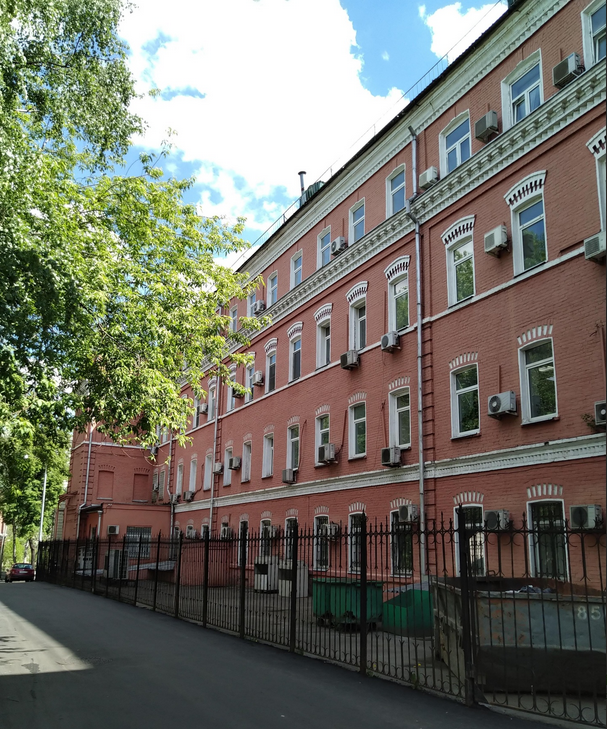- Address:
- Russia, Moscow, per. Sivtsev Vrazhek, 29/16
- Site:
- https://raen.info/
- Date of founding:
- August 31, 1990
- Number of students / in the field of AML/CFT:
- -/-
- Number of teachers / in the field of AML/CFT:
- -/-
- President:
- Burak Petr Iosifovich
- Active member of the Russian Academy of Natural Sciences, Ph.D., Doctor of Economics, Associate Professor, Chief ResearcherFull member of the Russian Academy of Natural Sciences, Ph.D.:
- Bauer Vladimir Petrovich
- Email:
- bvp09@mail.ru
- Phone:
- 8 (916) 355-80-29

General information
All-Russian Public Organization "Russian Academy of Natural Sciences" (RAS)
Date of joining the International Network AML/CFT Institute: December 5, 2013 (Protocol of Accession).
The Russian Academy of Sciences is a membership-based public association, a scientific and creative organization of scientists, naturalists and humanitarians, designed to serve the development of science, education and culture of the Russian Federation.
The activities of the Russian Academy of Sciences are aimed at conducting fundamental and applied research, using their results in practice, training scientific personnel and highly qualified specialists, coordinating and organizing activities in the field of natural sciences and humanities.
The Russian Academy of Sciences operates on the basis of the principles of self-government, voluntariness, equality of members, legality, transparency, democracy, independence of science, alternative solutions to scientific problems, the connection of science, education and practice.
RAEN is free to define its internal structure, goals, forms and methods of its activities.
The activities of the Academy should be public, and information about its founding and program documents should be publicly available.
The objectives of the Academy are:
-
promoting the progress of science, education and culture as the most important conditions for the economic and spiritual development of Russia;
-
organization and coordination of fundamental and applied scientific research in the field of natural sciences and humanities, development and implementation of priority research programs and implementation of their results in practice;
-
assistance in improving the education system in Russia, training highly qualified scientific personnel, creating conditions for scientific creativity;
-
promotion of international cooperation in the field of science, education and culture, integration of Russian scientists into the world scientific community;
-
promoting the humanization of society through the improvement of upbringing and education, the revival and development of national cultures of the peoples of Russia, the harmonization of interethnic relations.
In order to achieve the statutory goals of the Russian Academy of Sciences , in accordance with the current legislation and in accordance with the procedure established by law , it carries out the following types of activities:
-
develops a theoretical base in the field of fundamental sciences and develops programs based on it to create fundamentally new technologies;
-
provides scientific, methodological and informational support for economic and social reforms;
-
participates in comprehensive research of the territory of Russia, its natural reserves;
-
develops promising methods of development and effective use of natural resources;
-
develops and implements projects and programs to preserve and strengthen the health of children, the entire population of the Russian Federation;
-
analyzes and develops programs to ensure human and social security, including the problems of the country s ecology, reducing the threat of global and local military and national conflicts, information security and legal protection of Russian citizens;
-
provides scientific and methodological guidance on the examination and evaluation of the effectiveness of proposals put forward as scientific discoveries, scientific ideas, scientific hypotheses;
-
conducts independent public examinations of scientific discoveries, scientific and economic projects, educational and research programs;
-
creates and develops a network of educational and research organizations, including universities, in order to bridge the gap between science and higher education;
-
promotes the improvement of the level of education in higher education through the introduction of advanced methods and technologies for organizing the educational process, improving the qualifications of teachers, creating a well-equipped material base of higher educational institutions;
-
participates in the development and implementation of international scientific and educational programs and projects;
-
organizes and conducts scientific contests of promising inventions and other innovative proposals in order to find the most effective ideas, the latest technologies, original technical solutions;
-
participates, organizes and conducts congresses, symposiums, conferences, seminars, meetings, contests, exhibitions, fairs, lotteries, auctions on the subject of the Russian Academy of Sciences in order to popularize scientific achievements and discoveries, put them into practice;
-
carries out editorial and publishing activities, develops and implements programs for the preparation and publication of scientific journals, collections of works, monographs, encyclopedic publications in various fields of scientific knowledge, establishes mass media;
-
carries out scientific relations with the Russian Academy of Sciences, branch academies, domestic and foreign scientific and scientific-technical societies, national academies of sciences of other states, other scientific organizations;
-
establishes business contacts, cooperates in the field of science, technology, new technologies, economics, finance and culture with legal entities and individuals, including foreign ones;
-
establishes awards, prizes, scholarships, and other incentives for special contributions to the development and support of natural sciences and humanities;
-
nominates the most talented scientists and their works for the established state titles and awards in the field of science, technology, culture and art;
-
creates scientific divisions: scientific sections, centers, commissions, councils;
-
creates regional branches, branches and representative offices;
-
establishes non-profit organizations, including public associations, joins associations and unions;
-
independently determines the organizational structure.


Comments 0
CommentateOnly authorized users can post comments.
Authorization